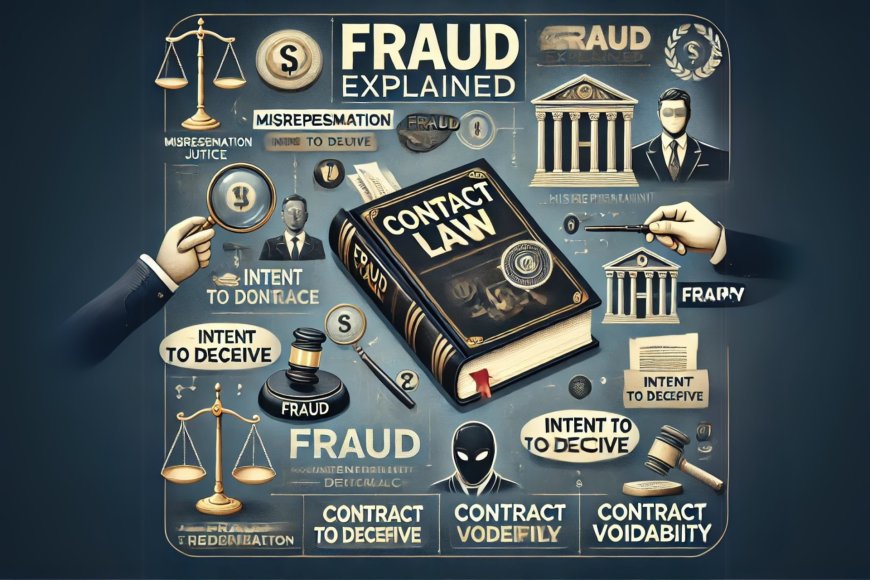A Guide to Understanding Fraud within Contract Law
Fraud in contract law occurs when one party misleads the other with false statements or omissions to obtain a contract. Key factors include intent, trust and damages. Protect yourself with due diligence, legal advice and proper documentation.

Contracts form the backbone of business and personal agreements, ensuring that parties meet their obligations. However, not all contracts are made in good faith. In contract law, fraud arises when one party intentionally misleads another in order to obtain the contract. This type of deception can invalidate the contract and have legal consequences. Let’s break down what constitutes fraud in contract law, its features, and implications.
What is Fraud in Contract Law?
In contract law, fraud refers to an intentional misrepresentation or deception by one party to induce the other party to enter into a contract. Deception can include false statements, omissions of important facts, or actions to mislead the other party. For a fraud claim to succeed, the affected party must prove that the fraud caused their loss or income.
Key Elements of Fraud in Contract Law
Certain things must be in place for fraud to be established:
- False representation: One party makes false statements or conceals material facts in a contract.
- Knowledge of falsification: The party committing the fraud knows that the information provided is false or misleading.
- Intent to deceive: Misrepresentations are made with the intention of getting the other party to agree.
- Reliance: The deceived party relies on inaccurate information when deciding to enter into a contract.
- Damages: The affected party suffers monetary or other measurable loss as a result of the fraud.
Examples of Fraud in Contracts
- Misrepresentation of the quality of the goods: The seller knowingly gives false information about the quality or condition of the goods in order to facilitate the sale.
- False credentials: Someone falsifies qualifications to win a job contract.
- Concealment of defects: The property seller conceals important defects such as structural damage to close the deal.
Legal Consequences of Fraud
Fraud in contract law can have severe legal repercussions, including:
- Voidability of Contracts: The fraudulent party may void or terminate the contract.
- Compensation: Courts may order the fraudulent party to pay compensation for lost income.
- Penalties: In some cases, courts may impose fines to prevent fraud.
- Criminal charges: Serious cases of fraud can lead to criminal investigations and charges.
How to Protect Against Fraud in Contracts
- Do due diligence: Verify all claims and representations before signing a contract.
- Take legal advice: Consult with a legal professional to review contracts and identify potential red flags.
- Include warranties and guarantees: Make sure contracts include clauses protecting you from false claims.
- Document everything: Keep a written record of all transactions and agreements.
Conclusion
In contract law, fraud undermines trust and fairness in contracts. By understanding the components and taking preventive measures, individuals and businesses can protect themselves from fraudulent practices. If fraud is suspected, seeking legal help early can help resolve disputes and ensure justice is served. Always treat contracts with care and clarity to ensure solid and truthful contracts.
What's Your Reaction?





































































